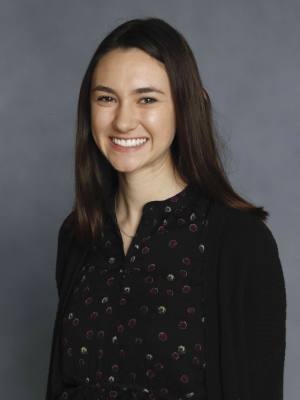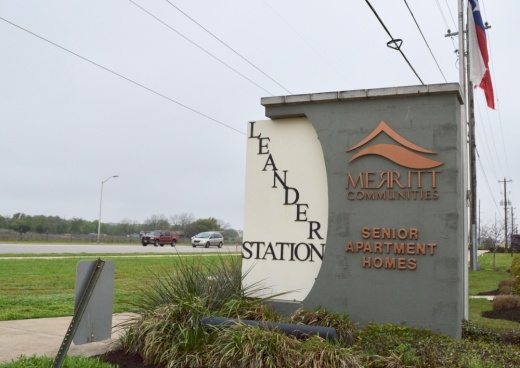Some national stores, such as Costco, Target and Whole Foods, have already set aside designated shopping time for seniors and people with underlying health conditions who are at higher risks for severe coronavirus illness.
Rob Faubion, the marketing and communications director for AGE of Central Texas, said the nonprofit is building an online resource directory for families and caregivers to use while social distancing at home.
“Having to shelter in place does cause isolation issues—you don’t have anyone to socialize with,” he said. “We’re trying to help alleviate that for not only the folks that we serve but for the general public.”
Resources include videos of historical sites, art showings and exercises, he said. Another resource to remember is the 211 hotline, which connects Texas residents to the Texas Health and Human Services Commission to find services.
AGE of Central Texas, an Austin-based nonprofit that helps senior adults and their caregivers, operates two social and wellness centers in Austin and Round Rock, which remain open as usual for families who cannot care for their seniors during the day. All seniors are screened according to Centers for Disease Control and Prevention guidelines before entering the centers, Faubion said.
"We're serving a very vulnerable population," he said. "So we are doing everything we can to protect our members when they come."
For caregivers, the best ways to prevent passing the virus to seniors is to wash hands, keep surfaces clean and disinfect common surfaces such as light switches and door knobs, Faubion said.
Caregivers and families should also check that seniors have at least two weeks of medications, food and supplies.
“Check in with them on a more than normal basis because they’re going stir crazy, too,” Faubion said. “So give them a call; send them an email; send them a text. Check on them, and make sure they are OK.”
Texas Health and Human Services issued additional guidance to nursing homes March 15, which includes restricting access from nonessential visitors such as family, according to the commission’s release. Nursing facilities were encouraged to use FaceTime, Skype or other video systems so residents can communicate with their families.
Nursing facilities were also instructed to screen staff, medical professionals and essential visitors for the coronavirus before they enter the facility.
Sarah Hyde-Williams, a senior housing and elder care consultant at Senior Living Advisors of Austin, said senior living communities are safe and well-insulated for seniors amid coronavirus concerns.
“They are very well-protected, and that's probably one of the safest places to be right now—is in a senior housing community,” she said.
Some senior communities have seen families who are angry that they cannot see their family members in person, but it comes down to liability, Hyde-Williams said. The communities have a heart and passion for what they do and want to protect the patients in their care.
Hyde-Williams said seniors who are not in these communities and need extra help should rely on neighbors, religious organizations and food banks if family and friends are not options.
“Allow your wants and your needs to be met by someone that is offering,” she suggests to seniors.
Caregivers should be especially cautious with coronavirus concerns and anxieties, especially in people with Alzheimer’s disease or dementia. Hyde-Williams said patients will time travel and do not understand the images of people in masks, so it is best to turn off the televisions.
“They don't understand that this isn't the end of the world,” she said. “So what we have to do as professionals is reduce that anxiety.”
If caregivers are feeling overwhelmed right now, they can reach out to an elder care consultant, Hyde-Williams said, and new residents are still being accepted at senior living centers. Practices and timelines for admissions have been modified through virtual tours and video conferencing, and 72 hours of monitoring are now part of the process in addition to regular paperwork, she said.
There are about 325 senior living communities in Travis and continuing counties, with about 25 more under construction. She said Cedar Park, Leander, Dripping Springs and Pflugerville are rapidly increasing their aging populations and adding new senior facilities.
Meals on Wheels of Williamson and Burnet Counties has suspended its daily hot meal and delivery service and has supplied regular meal recipients with two weeks of shelf-stable meals, said Clarence Shepard, the director of senior nutrition.
The program feeds about 1,400 seniors in the two counties, and additional frozen or shelf-stable meals could be provided past the two-week supply. People looking to support Meals on Wheels can best support the program with monetary donations on their website.
“We won’t leave them hanging,” Shepard said.
Faubion suggests these Williamson County resources for seniors and families in need:
- Round Rock Area Serving Center: operating a food pantry and some Fresh Food for Families distribution days. www.rrasc.org
- The Caring Place: offering a drive-thru food pantry on Tuesdays and Thursdays from 10 a.m. to noon in Georgetown. www.caringplacetx.org
- Operation Liberty Hill: a food pantry and thrift store in Leander. https://operationlh.org
- Shepherd’s Heart: a food pantry and thrift shop in Taylor. www.shepherdshearttaylor.org
- Hutto Resource Center: www.huttoresourcecenter.org
- Operations for Williamson and Burnet Counties: operates Meals on Wheel and Head Start. www.owbc-tx.org
- United Way of Williamson County: www.unitedway-wc.org
- Aunt Bertha: an online social care network that helps people find social care providers. www.auntbertha.com





